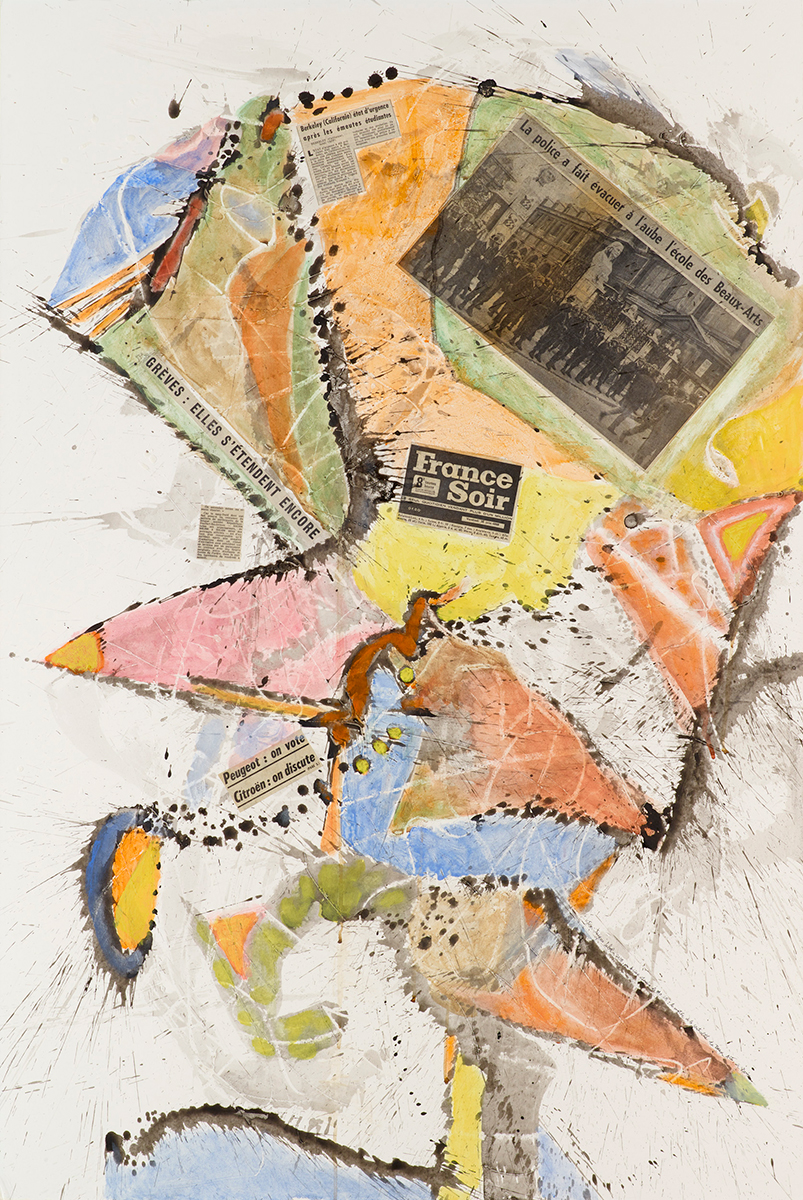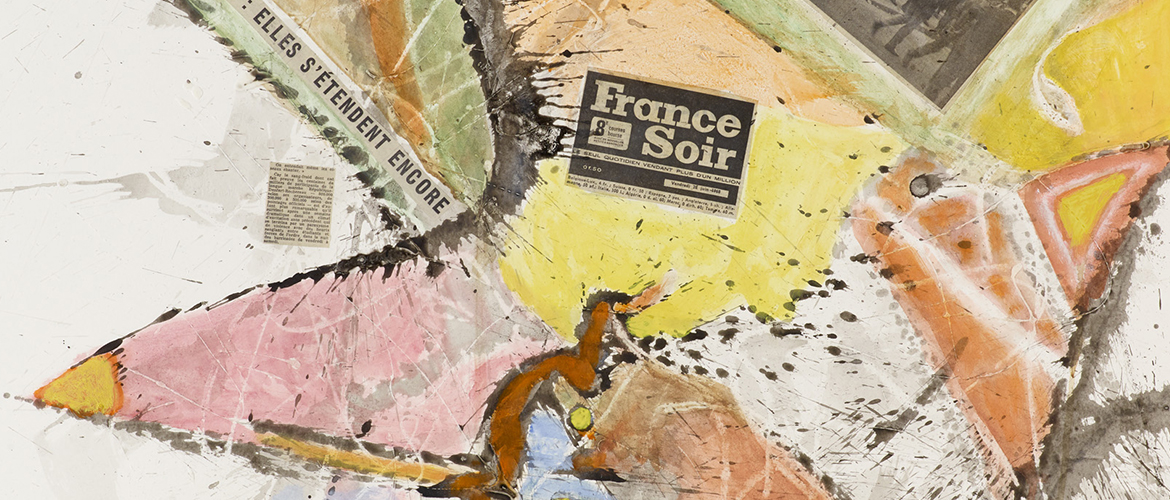Jean-Jacques LEBEL (Paris, 1936)
Untitled, 2018, collage and acrylic on board, 120 x 80 cm, EBA 11280
Jean-Jacques Lebel has been a figure of the artistic, literary and political avant-garde since the 1960s. Close to the surrealists, the American authors and poets of the Beat Generation, whom he helped to make known in France, committed against the Algerian war and then during the events of May 1968, he has worked as an editor, director, exhibition curator, art critic while constantly pursuing his personal plastic research. The first to present a happening Europe, he produced numerous performances in the 1960s, a period during which, working in Paris, London or New York, he collaborated with Oldenburg, Erró, Carolee Schneemann, Yoko Ono, Pommereulle or Robert Filliou. Handling during his career a wide range of techniques - installation, sound, video, devices - he does not however cease to paint and draw, and explores all the possibilities of this register: collages, wax, oil, acrylic, even bird droppings are used in changing combinations in formats willingly large.
This work is one of the four collages entered in the collection, constituting a set that perfectly illustrates the plastic research, but also the rebellious spirit, not devoid of humor, of this activist who continues to denounce the established order. Here, the collage, process dear to the surrealists, juxtaposes - apparently freely - of the titles of press taken from the daily newspaper France soir, of which the decontextualization and the arrangement compose a polysemic speech: denunciatory (the vacuity of agreed formulas is revealed there), comic in the irreverence or absurd until poetry. Dadaist in spirit, these compositions also borrow from the avant-gardes of the 20th century their expressive and even lyrical facture, heir to the abstractions of Kandinsky as well as the drippings of Pollock. The rough contours of schematized faces evoke the synthetic forms of the primitive arts, making these four compositions both a precipitate of the artist's political commitments and poetic ambitions, and a cartography of his collecting tastes.
The reference to the evacuation of Beaux-Arts de Paris, a nod to both the artist's activism in May '68 and that of the institution's students, makes explicit the resonance of Lebel's work with creation today within the school, while providing it with a program: to take hold of the world, to say it, to reflect on it in order to better transfigure it. As an artist who passes on his work, Lebel thus offers both a heritage and a horizon to be reached.

Sans titre, 2018, collage et acrylique sur carton, 120 x 80 cm, EBA 11280



